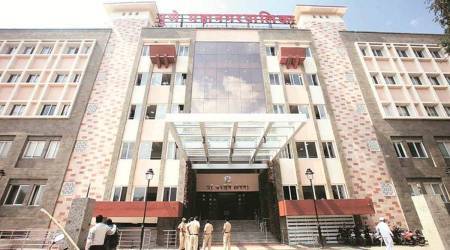A day after Pune Municipal Corporation (PMC) decentralised the working of its dedicated Pre-Conception and Pre-Natal Diagnostic Techniques (PC-PNDT) Act cell, the concerned department cited the shortage of manpower as the reason to the advisory committee that took on the civic administration for not discussing with them before taking such amajor decision.
The cell was set up to stop female foeticides and arrest the declining sex ratio.

“We discussed the PMC order of decentralising the working of the dedicated PC-PNDT Act cell. The civic administration has the powers to take the decision but it should have taken the opinion of the advisory committee before taking the decision in the interest of effective implementation of the PC-PNDT Act,” said Kiran Moghe, social activist and member of the advisory committee. The issue was raised in the advisory committee after it was reported by The Indian Express.
Story continues below this ad
She said the PMC informed that it has not dissolved the dedicated cell but decentralised the field work to the ward medical officers. “We pointed out that if the shortage of manpower was informed to us, then the advisory committee would have taken up the issue with the municipal commissioner. Now that the decision to decentralise the field work has been taken, we have decided to take a review of the new arrangement after three months,” Moghe said, adding that everyone knows the extent of workload ward medical officers already have.
Kalpana Baliwant, assitant medical officer and appropriate authority for the PC-PNDT Act, said that the dedicated cell was short of manpower for effective implementation of the PC-PNDT Act. “There were only two doctors and five ood inspectors in the cell against the approved manpower of four doctors and 12 food inspectors. The cell had done a good job with limited staff but it was difficult for the members of the cell for effective implementation of the PC-PNDT Act considering the increased number of establishments being set up under the law and the expansion of city limits,” she said.
The state government was consulted and also the legal opinion of civic legal department was taken before taking the decision, Baliwant said. The authorised ward medical officers are only supposed to do the field work while the dedicated cell and appropriate authority would be final authority to take decision on the cases and proposals related to PC-PNDT Act, she added.
“The responsibility of implementing PC-PNDT Act and the MTP Act with same person would result in qualitative impact on implementation of the law,” Baliwant said.
Story continues below this ad
PMC chief health officer Ashish Bharati was not available for comments.
Incidentally, another social activist Varsha Deshpande welcomed the PMC move. “It will ensure effective implementation of the law and stop illegal practice of sex determination as well as stop female feoticide,” Deshpande said.










